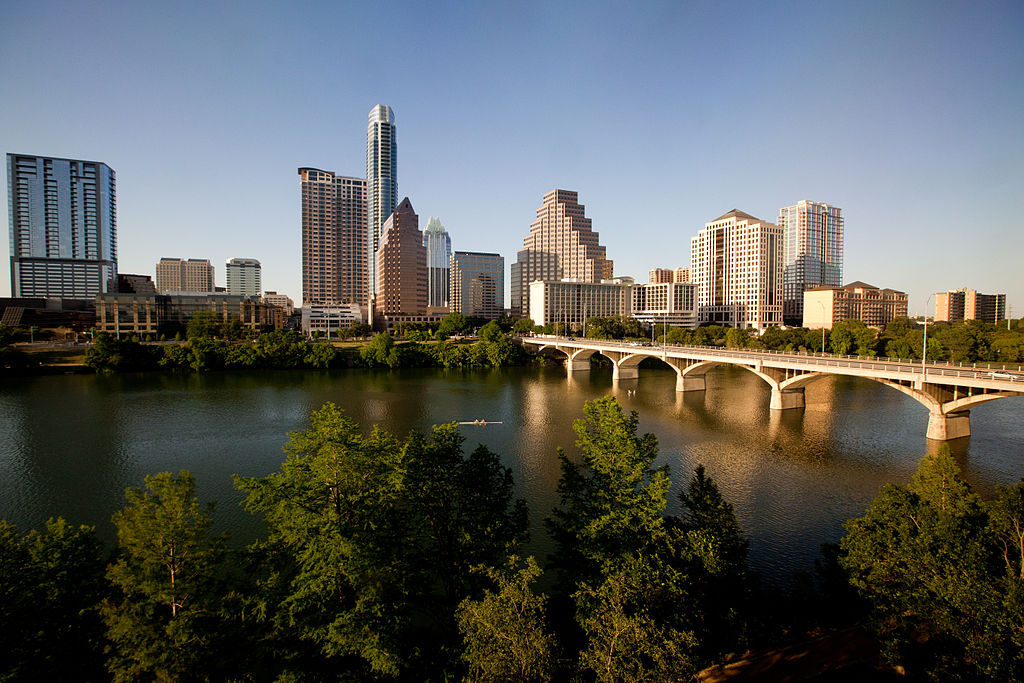
Summary
In March, Austin City Council approved the latest update to the Austin Energy Resource, Generation and Climate Protection Plan, which basically determines where Austin will get its energy for the next 10 years. In this guest blog, the Sierra Club runs down the good parts of the plan, as well as points out ways it could be improved in the future.

About the Org
This guest post comes to us from the Lone Star Chapter of the Sierra Club, the oldest grassroots environmental organization in Texas. The Sierra Club believes our open spaces, clean water, and natural resources should be protected so that current and future generations may enjoy them.
Please note – this blog was originally posted on March 27th on SierraClub.org. It has been shared with us by the Lone Star Chapter of the Sierra Club.
Yesterday afternoon, in a “virtual” meeting, Austin City Council approved the Austin Energy Resource, Generation and Climate Protection Plan through 2030 (Resource Plan), committing the utility to no carbon-based electric generation by 2035.
City Council postponed discussion about the process for updating the plan to an undetermined date later in the year. Three council members abstained from the vote, saying while they supported the plan they would have preferred to delay the approval process to offer community members, particularly communities of color, more time to give input.
Previous versions of the Resource Plan — such as the 2027 Resource Plan — had been marked by dozens of public comments noting that the plans weren’t aggressive enough during the climate crisis, while others offered support.
Due to the City of Austin’s current “Stay Home, Work Safe” order regarding the COVID-19 emergency, yesterday’s city council meeting was held virtually, which meant that residents had to phone in to the meeting to make comments on speaker phone to Mayor Steve Adler and city council members.
Numerous speakers favored delaying approval of the plan, calling for at least a two-week delay, in order to seek more input from marginalized communities that were largely left off of the Electric Utility Commission working group and have been unable to attend most of the working group’s “public” meetings, which met near downtown during work hours and were not recorded. Other community members, including some representatives of the Sierra Club, said the plan was sufficient to pass, but recommended scheduling an update soon to address the lack of inclusion in the plan.
Under the new plan, Austin Energy will maintain its commitment to ceasing operation of its share of the Fayette coal plant by the end of 2022 and commit to shutting down all of its fracked gas power plants by 2035—phasing out the latter with carbon pricing starting in 2022. The utility also will agree to immediately limit operations of the coal plant during low-demand periods through carbon pricing, which is ground-breaking in Texas’ “energy-only” market. Austin Energy will not build or contract any more fossil fuel investments, which means the utility’s power resources would be carbon free by 2035 or sooner. Austin Energy would also not invest in more nuclear power. The plan further increases goals for energy efficiency, thermal storage and local solar, and requires community input from limited-income communities to better design those programs.
“The Resource Plan’s approval makes Austin Energy the first Texas utility to commit to shutting down all of its legacy fossil fuel plants and redirecting investments to thermal and electric storage, renewables and energy efficiency,” noted Cyrus Reed, Interim and Conservation Director of Sierra Club’s Lone Star Chapter. “However, the six month process of developing and adopting the plan was not perfect, so we are calling on City Council to help design and require a better process with wide-ranging community input going forward.”
The recommendation to require an update in 2023 (which was endorsed by the Resource Management Commission) was not immediately adopted by the City Council. Instead, City Council delayed a discussion about plan updates to a future meeting where residents could provide input and ideas in person.
“While there are a lot of good steps in the plan, marginalized communities, particularly communities of color, were excluded from this update process,“ said Shane Johnson, the Sierra Club’s Clean Energy Distributed Organizer. “City Council must address this violation of its equity values by requiring an update in two years and making sure Austin Energy works with the Equity Office to ensure the next working group is accessible to the public, recorded, and truly representative of Austin’s diverse communities.”



